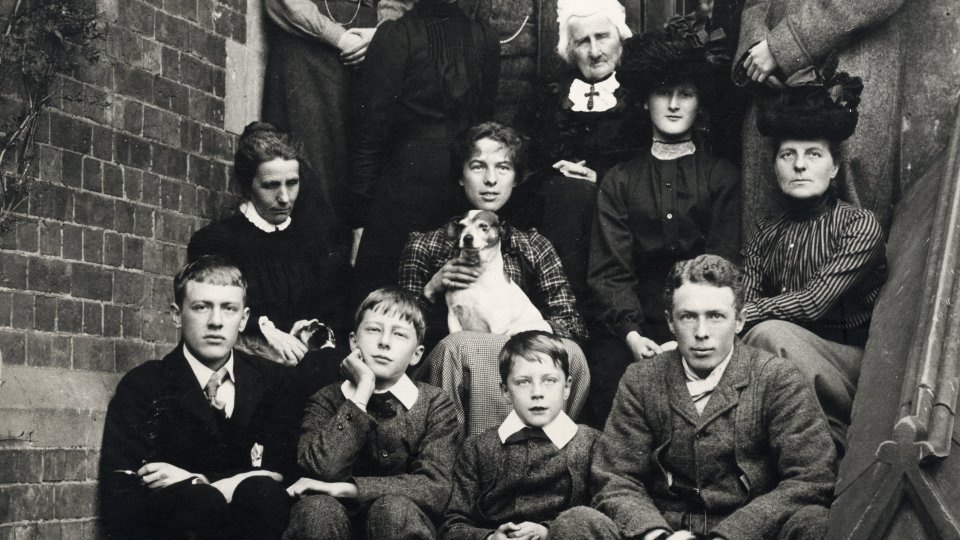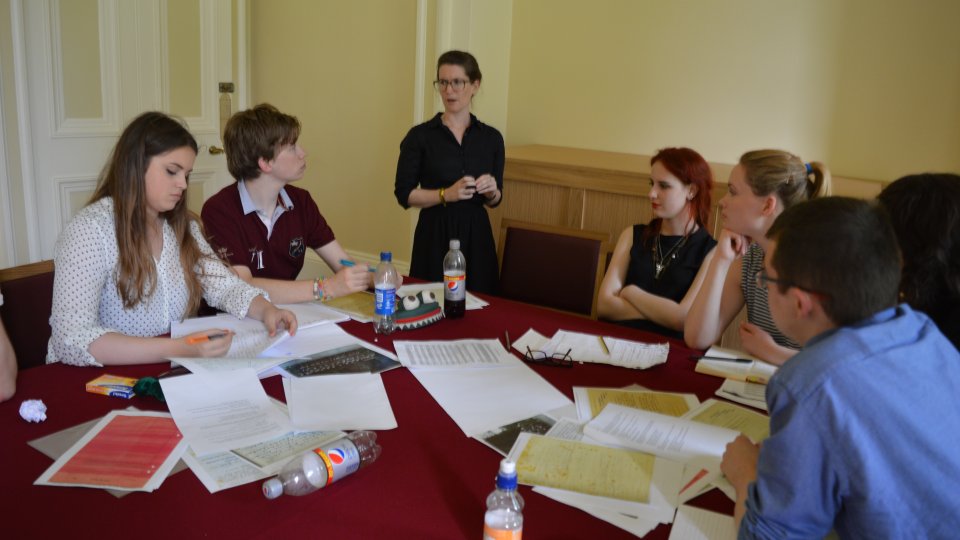This exhibition was created using items selected by Emily Willmoth (archives volunteer, aged 16).
Rupert Brooke is generally remembered as a poet, or more specifically as a war poet. While poetry was the field of literature in which he left the greatest mark, he also distinguished himself in both prose and drama.
Rupert Brooke’s earliest experience of acting was probably when he played Portia in Hillbrow Boys' Preparatory School’s production of Shakespeare’s Merchant of Venice, when Brooke was eleven years old. His first piece of writing to appear in print is thought to be an anonymous review of a production of Shakespeare’s As You Like it, written in 1904.
It is perhaps such early experiences which prompted an interest in drama which Brooke explored as a reader, viewer, actor, director, critic and writer.
Rupert Brooke developed an interest in poetry at an early age, while still living with his family at Rugby. This interest is evident primarily through his appreciation and criticism of the works of others. Brooke was developing strong tastes, which he expressed most characteristically boldly in his letters. Some of these early dramatic experiences may have influenced his later work and attitudes.
For his thirteenth birthday, Rupert Brooke’s Aunt Fanny gave him a book of questionnaires, which he asked friends and family to complete. He also answered the questionnaire himself, revealing such details as his favourite actors and plays.
Rupert Brooke saw Peter Pan or, the Boy Who Wouldn’t Grow Up for the first time in March 1904, while visiting his older brother Richard in London. In a letter to his friend Geoffrey Keynes, Rupert wrote ‘…It was perfect. It is merely and completely the incarnation of all one’s childish dreams – the best dreams, almost that one has…’
His love of the play was such that he saw it again in 1905 and planned to see it for a third time. His letter to St John Lucas, written after his second viewing, when Rupert had already come up to King’s College, Cambridge, shows that his love of the play endured, even if his new home meant he saw it in a different context. Initially, he did not enjoy Cambridge life, so the escapism offered by drama may have brought him some comfort.
Rupert Brooke came up to King’s College in 1906. He took the Classical Tripos but his interests were primarily literary. Like many undergraduates, when not studying Rupert Brooke enjoyed taking part in clubs and societies, including dramatic societies.
Brooke arrived at King’s College at a time when there was something of a dramatic renaissance taking place throughout Cambridge’s student community. The Marlowe Society staged Dr Faustus, its first play, in November 1907. In this, Rupert Brooke played the part of Mephistophiles. Though their first play was directed by Justin Brooke (not related), Rupert directed Comus, their second play, the following year. In this play, Rupert played the Attendant Spirit.
Members of the Marlowe Society such as Rupert Brooke, Justin Brooke, Brynhild Olivier and Ethel Pye formed a close group of friends that Virginia Woolf referred to as the ‘Neo-Pagans’.
Having completed his BA, gaining a Second Class degree rather than the First Class degree he had hoped for, and given up his room at King’s, Rupert Brooke moved to Grantchester in 1909. At first he lived at The Orchard, then he moved to The Old Vicarage in December 1910.
It was there he seemed happiest and he seems to have found it easier to concentrate on his studies. Brooke was studying for a Fellowship at King’s College, which meant that he would have been among the academic elite in Cambridge. He failed on his first attempt, in Easter 1912, but the following year he earned his Fellowship with a dissertation entitled ‘John Webster and the Elizabethan drama’.
It was through the publication of his book Poems, in 1911, that Brooke made his name as a poet but his reputation as an academic was earned through his focus on drama.
Brooke’s standing as a playwright was not secured during his lifetime and despite the posthumous performance and publication of his one act play ‘Lithuania’, in 1915, it is still not widely recognized.
While travelling America and writing a column for The Westminster Gazette, Rupert Brooke watched a performance of ‘Hedda Gabler’ at Chicago Little Theatre, on 29 April 1914. Afterwards, he introduced himself to the actor Maurice Browne, who was also the Director of the theatre, and his actress wife Ellen Von Volkenburg. They spent three nights talking and singing. During this time, the actors heard Brooke’s play. The following year, they were in the first cast of actors to perform it on stage.

